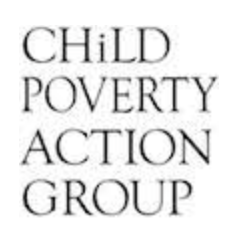Child Poverty Action Group is calling on the Government to nationalise early childhood education provision in response to the challenges presented by COVID-19 and reports of providers prioritising profits over quality of services.
CPAG’s latest research paper, Investing in children? Privatisation and early childhood education in Aotearoa New Zealand by Caitlin Neuwelt-Kearns and Dr Jenny Ritchie, examines the increase in for-profit corporate ECE providers and how this has impacted on the quality of care.
Dr Jenny Ritchie, who is an Associate Professor in Te Puna Akopai, the School of Education, at Te Herenga Waka Victoria University of Wellington, and CPAG researcher Caitlin Neuwelt-Kearns say their research has found that the increase in for-profit private provision has been accompanied by a decline in quality of care.
“Private for-profit providers are less likely to provide quality services across a range of indicators, including staff qualifications, workloads and retention, teacher-to-child ratios, and cultural responsiveness,” they say.
“Despite New Zealand being internationally lauded for its high rates of ECE participation, attending a poor quality ECE service is potentially worse than not attending ECE at all.
“Rather than propping up the existing system – whereby ECE is treated as an investment opportunity, not a public good – the Government should be looking to nationalise ECE provision in its response to Covid-19.”
The impact of providers not prioritising quality can be even more detrimental for children in low income communities.
“ECE has the potential to act as an ‘equaliser’, and a vehicle for mitigating child poverty in Aotearoa,” say Neuwelt-Kearns and Ritchie.
“However, attendance at an ECE service is not universally beneficial for all children. Lower socioeconomic areas are overrepresented in the number of ECE services that have received Education Review Office reports indicating poor quality provision.”
The pursuit of profit within the sector has become more evident in the face of Covid-19.
Investment advisors have recommended that the ECE sector will be at the “top of the list” for smart investors according to this NZ Herald article , as the sector “allows investors to gain exposure to an industry backed by government funding”. There are also reports of providers accessing the wage subsidy while continuing to charge parents.
In response to these findings, CPAG is calling on the Government to take a more active role in overseeing the sector.
“COVID-19 has provided an opportunity for long-needed reform of the sector, with occupancy rates expected to decrease following increased unemployment, “says Neuwelt-Kearns and Ritchie.
“High quality community-based not-for profit ECEs must be funded to serve as a public good alongside the schooling sector, rather than as an instrument for individual and corporate profits.”






The quality of interaction between adult and child in the preschool years is a key influence on the direction and outcomes for the child in establishing a foundation skill set and confidence to be assertive in school learning experiences and peer relationships.
No place for a profit driven industry.
The paucity of wealth facing most parents sees two incomes being needed to make ends meet regarding accommodation, food and care for any children, so two parent families now tend to have both parents working.
The neoliberal fiscal demands placed on young parents severely limits their roles as parents and the time they have to spend with their children to provide the warmth and care needed for healthy growing personalities.
In the 1940s it was uncommon for both parents to be working so the profiteers of the now increased workforce may well provide the tax / income for the state to run ECE complete with meals, health services and some parent education and support now needed as the networking of “Mums” has been largely disbanded.
Comments are closed.